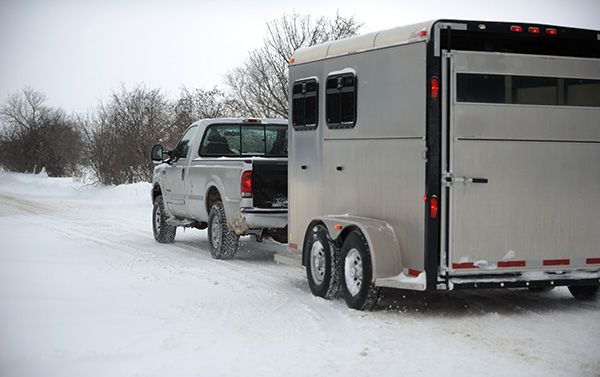
Whether you’re hauling a trailer for work or play, towing can put significant demands on your pickup truck. Preparing your vehicle beforehand is necessary to ensure safety, efficiency, and peace of mind on the road. If you’re gearing up for trailer towing, there are several steps you can take to make sure your truck is up for the challenge.
Check Your Truck’s Towing Capacity
Not all trucks are created equal when it comes to towing. The first thing to do is check your vehicle’s towing capacity, which can usually be found in your owner’s manual or the manufacturer’s website. This figure tells you the maximum weight your truck can safely tow.
Exceeding this limit isn’t just bad for your truck—it’s dangerous. It can lead to overheating, brake failure, or even structural damage. Always factor in the weight of the trailer and its contents when calculating the total load.
Inspect Your Hitch and Towing Equipment
Your hitch is the backbone of any towing setup, so it’s vital to ensure it’s up to the task. Start by checking the hitch receiver for any signs of rust, cracks, or damage. Make sure the hitch ball size matches your trailer’s coupler to prevent unexpected detachment.
Don’t forget about safety chains, which act as a fail-safe in case the trailer detaches. Inspect these chains for wear and make sure they’re crossed under the hitch to catch the trailer tongue if it disconnects.
If your truck uses a weight distribution hitch, ensure it’s properly adjusted. This type of hitch helps distribute the weight of the trailer more evenly across all axles, improving stability and reducing wear on your truck.
Verify Your Braking System
Towing a heavy load demands more from your brakes. If your trailer is equipped with electric brakes, you’ll need a brake controller installed in your truck. This device synchronizes the trailer’s brakes with your truck’s, giving you better stopping power and control.
Before hitting the road, test your brake controller to ensure it’s working correctly. Also, inspect your truck’s brakes for wear and tear. Brake pads and rotors should be in good condition to handle the extra stress of towing.
Ensure Proper Lighting and Electrical Connections
Trailer lights are not just a legal requirement—they’re a key safety feature. Connect your truck’s electrical system to the trailer’s wiring harness and test all lights, including brake lights, turn signals, and hazard lights.
If any lights are out or dim, check for loose connections or damaged wires. Properly functioning lights keep you visible to other drivers, especially when towing at night or in bad weather.
Check Your Tires and Suspension
Tires are often overlooked but play a critical role in safe towing. Start by inspecting your truck’s tires for wear, cracks, or low tread depth. Inflate them to the manufacturer’s recommended pressure, which can usually be found on the driver’s side door frame.
Don’t forget to check the trailer’s tires as well. Uneven wear or underinflation can lead to blowouts, which are both dangerous and inconvenient.
Your suspension system also deserves attention. Towing puts extra strain on your truck’s springs and shocks, so look for signs of sagging or leaks. Upgrading to heavy-duty suspension components might be worth considering if you tow frequently.
Balance and Secure Your Load
Improperly distributed weight in your trailer can cause sway, making it harder to control your truck. The general rule of thumb is to load 60% of the weight toward the front of the trailer and secure everything with straps or tie-downs.
If your trailer has a tongue weight scale, use it to ensure the tongue weight falls within 10-15% of the total trailer weight. Too much or too little tongue weight can lead to dangerous handling issues.
Plan Ahead for the Road
Towing a trailer requires extra caution, especially in traffic or on winding roads. Plan your route in advance to avoid low bridges, sharp turns, and steep grades. Leave extra space between your truck and the vehicle ahead, as your stopping distance will be longer.
If you’re new to towing, practice in an empty parking lot before hitting the road. Practice backing up, turning, and stopping with the trailer attached to build your confidence.
Don’t let trailer troubles ruin your plans. Visit Hometown Tire and Auto in Liberty, TX, for top-notch service to keep your truck and towing equipment in perfect shape. Call us now for expert care!